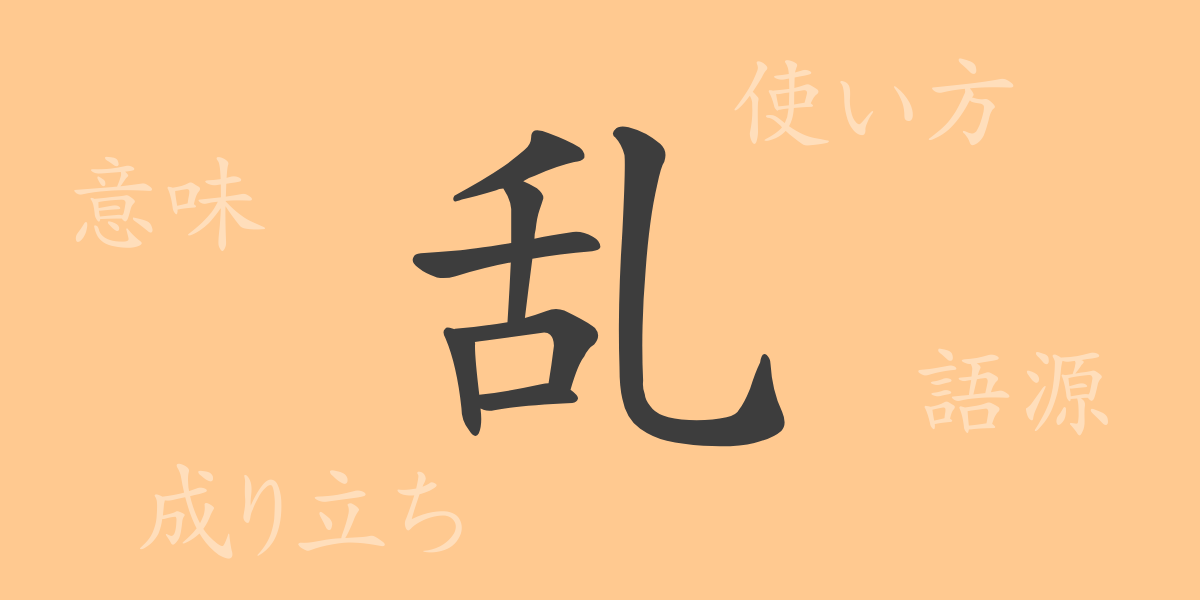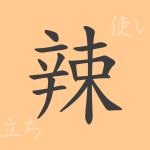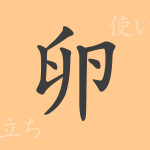The kanji deeply rooted in Japanese written culture, “乱” (ran), holds a special presence. Frequently used in our daily lives and incorporated into numerous expressions and idioms, “乱” is a character with profound significance. This article delves into the origins, meanings, usages, readings, and idioms or proverbs involving “乱.” Let’s explore the deep history and charm embedded in this single kanji together.
The Origin (語源) of 乱
The kanji “乱” (ran) has historically been used to signify chaos or turmoil, as its shape suggests. Its prototype can be found in ancient Chinese oracle bone script, where it combined elements representing a “chariot” and the shape of “亂” (ran), depicting the chaotic battlefield where chariots clashed. Over time, the shape evolved into the modern “乱,” but its fundamental meaning remains unchanged, representing disorder and chaotic states, and it continues to be used in this context today.
Meanings and Usages of 乱
The kanji “乱” (ran) holds meanings such as “confusion” and “disorder.” It also encompasses meanings related to “conflict” and “war.” This character is often used to describe situations where normal order is lost, and chaos prevails. For instance, it is used in contexts like “政治が乱れる” (seiji ga midareru, political disorder) or “心が乱れる” (kokoro ga midareru, mental unrest).
Readings, Stroke Count, and Radical of 乱
The kanji “乱” (ran) has the following characteristics:
- Readings: On’yomi (音読み) is “ラン” (ran), Kun’yomi (訓読み) is “みだ.れる” (midareru), “みだ.す” (midasu)
- Stroke count: 7 strokes
- Radical: 乙 (おつ, otsu)
Idioms, Common Phrases, and Proverbs Using 乱
There are numerous idioms, common phrases, and proverbs that include “乱” (ran), each demonstrating the rich expressiveness of the Japanese language. Here are a few examples:
- 乱心 (ranshin): A state of mental confusion or agitation, where one cannot make sound judgments.
- 乱世 (ransei): An era of war and social turmoil.
- 乱反射 (ranhansha): Irregular reflection of light.
- 家庭を乱す (katei o midasu): To disrupt the peace or order of a household.
- 心を乱す (kokoro o midasu): To disturb someone’s peace of mind.
These expressions are used in various situations in daily life. Particularly, “乱世” (ransei) is a term you might often hear in historical contexts.
Conclusion on 乱
The kanji “乱” (ran) is apt for expressing chaotic situations or mental agitation, as its appearance suggests. This character, used since ancient times, retains its meaning and is utilized in various idioms and expressions even today. Understanding the depth of meaning one kanji holds allows for a renewed appreciation of the richness and expressiveness of the Japanese language. Next time you encounter “乱” (ran), consider the history and culture behind it and enjoy its usage.

























